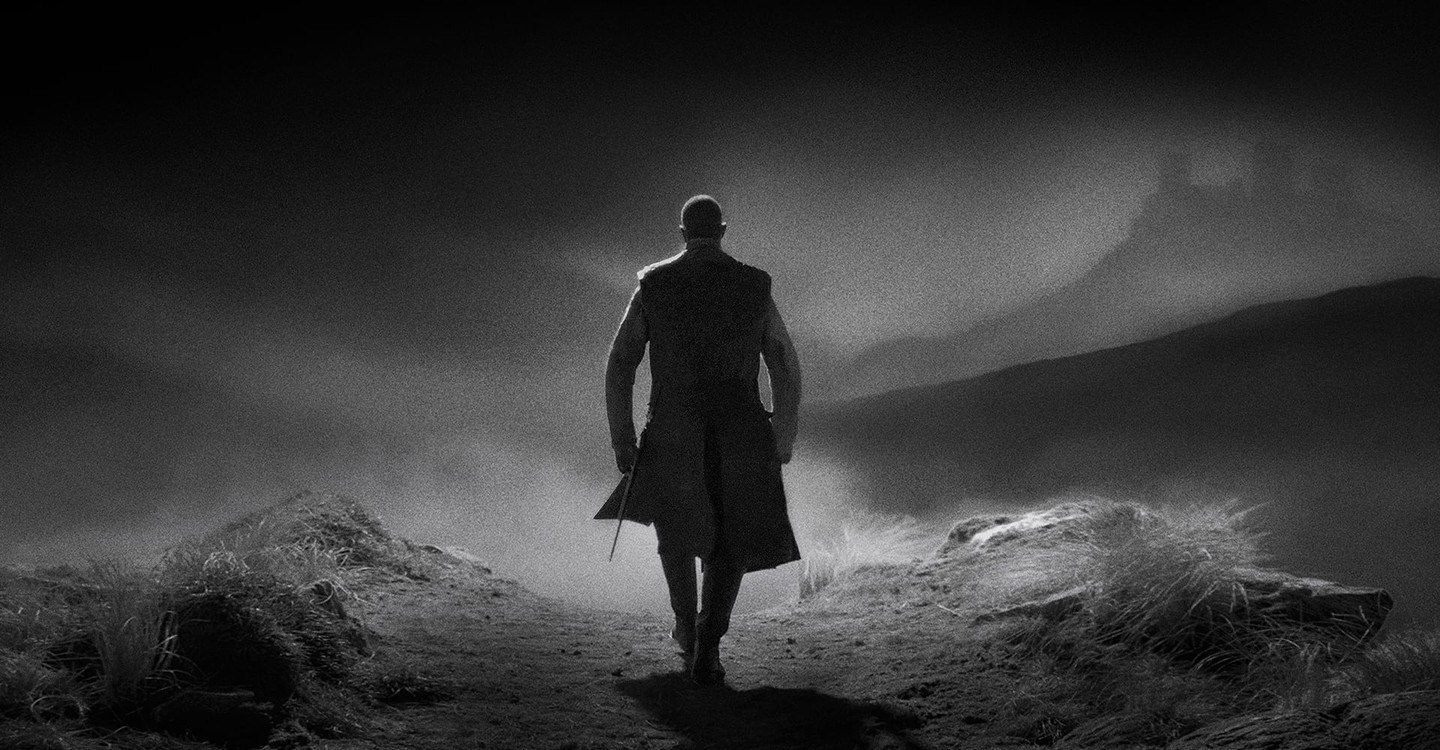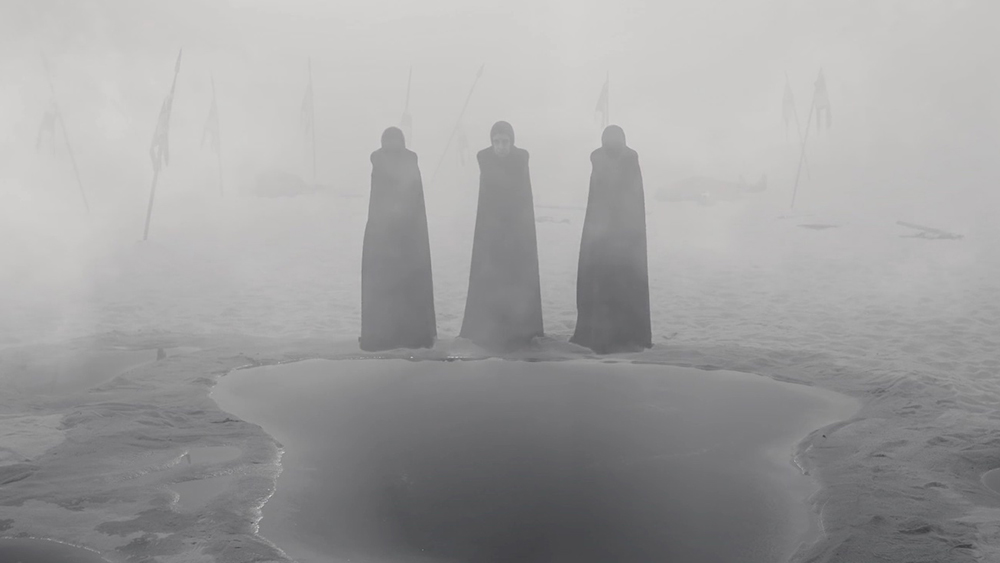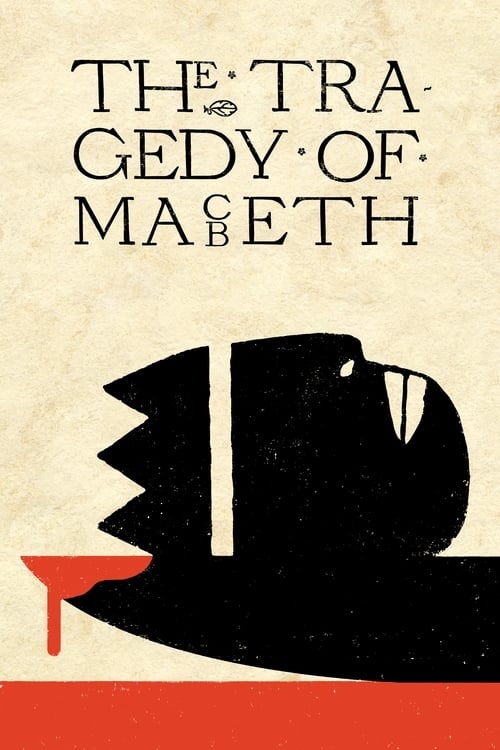A harrowing representation of a Shakespeare tragedy, led by gargantuan performances and a gorgeous aesthetic.
Another black and white film, this has been a seemingly popular trend over the past year. But out of all those films, this is the one that just seems perfect for this monochrome aesthetic – it would have felt incredibly offbeat to douse this picture in colour. You might be wondering, “why do we need another Macbeth film?” seeing as though Justin Kurzel’s epic retelling only came out in 2015. Here’s the thing though, you can rehash a story as much you want as long as it’s as breathtakingly unique as Joel Coen’s attempt – his first film without brother Ethan by his side. Shakespearean adaptations are an acquired taste; you feel like you must love them because of their literary value, with myself often being somewhat of a critic (although, I’m a big fan of Baz Luhrmann’s Romeo + Juliet). This film is a spectacle of grand proportion though, and might possibly be the best and most accurate Shakespeare adaption yet.

The film’s first shining light, the thing that grabs your attention from minute one, is the cinematography by Bruno Delbonnel. The framing is exquisite, and it is guided by this hypnotic element – you cannot take your eyes off it for a second. It is laden with gorgeous symmetry that evokes a sense of mysticism, which only adds to the magical nature of the story – it really is so alluring this film. There is certainly a magnitude to the camera work; to evolve every scene (some exponentially more than others) to gravity-defying levels, is an incredible feat of cinematography work.
This film is as raw as it comes and incredibly literal to the text it is based off. It is stripped back to its storytelling abilities, its visual magnificence, those theatrical performances. Coen’s direction allows all these aspects to excel without tainting any of it with over-exaggeration, or a need to modernise it. As we know, this is Joel Coen’s first film without his brother, but the character of Macbeth encompasses many of the Coen brother’s former protagonist’s characteristics; this self-indulgent nature, or severe need to self-destruct and to be wrapped up before firmly being dragged down by their own heavy decisions.
The great Denzel Washington portrays the titular character, and he doesn’t half make one hell of an entrance; protruding through the deep foggy wilderness onto a stark battlefield where he made his name famous. Washington is at his awe-inspiring best here, in the Shakespearean role that has alluded him for all these years, but the dramatic presence of it has been seen in so many of his performances. Macbeth travels through the fog to be greeted by three witches, who give the tragic would-be king a fateful prophecy. Kathryn Hunter portrays the witches (as well as an old man as the story progresses) and she is mesmerizing, playing both roles with equal creepiness and repugnancy – it is a tour de force of acting. And yet, Frances McDormand is their equal as the faithful and devoted Lady Macbeth, the troubled enabler of her husband.
Right off the bat, there is this ghostly feeling of dread that shrouds the film. It is an inkling of the film’s turbulent narrative (although, we all know what happens, surely?). This might be the “Tragedy of Macbeth”, but it is also the tragedy of many of the supporting characters that are associated with the original regicide. A crippling domino effect falls upon these characters, all because of this one power-hungry move. Unlike the 2015 version, this film has little to no action, but the final fight scenes are balletic and domineering, justly delivering Macbeth’s impending doom. They are swift but impressive, nonetheless.
The chances of this being the final interpretation of Macbeth and his story are slim to none, but to best this powerful adaptation would be an incredibly difficult task. It perfectly represents everything that Shakespeare would have wanted from his famous story, and even builds on it with gorgeous visuals, more electrifying performances, and a dreary and dominating setting. The fact it stayed so dark made me very happy – just as it was intended – because there is sometimes a need to soften these films, to make them more tasteful and watchable. But this is extremely watchable, and it very easily drags you in with its hypnotic aura.
The Tragedy of Macbeth is available to watch on Apple TV now.

No Comment.